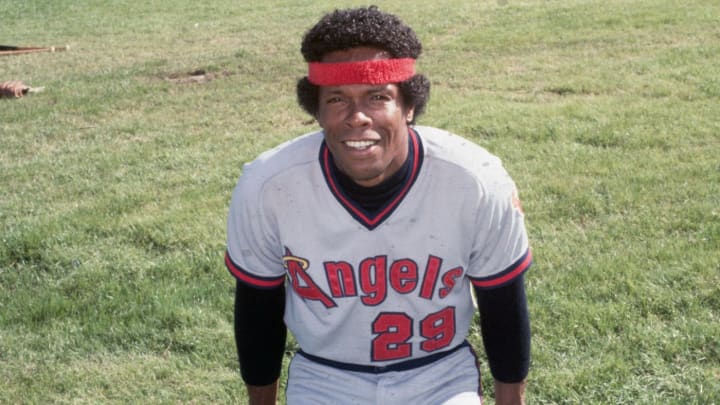La Vida Voices: The Life of Rod Carew

From his birth on a train in the Panama Canal Zone to his immigrating to New York City as a teen and, most recently, being the recipient of a heart transplant, Rod Carew has had a fascinating journey. Carew reflects on his days growing up in Panama, how he developed a love of baseball, and the transition in moving from a predominantly Spanish-speaking community in Panama and having to become bilingual by learning English as a high schooler at George Washington High School in Manhattan.
Discovered playing semi-professional ball after failing to make his high school varsity baseball team, Carew went on to become one of baseball’s all-time greats with his sweet swing. Just as importantly, he had great teammates, he tells us, none more impactful and more enduring than Tony Oliva.
The Life
You were born in the Canal Zone in Gatún as your mother was traveling on the train. What is your memory of learning to play baseball in Panama?
Well, that’s all we did in Panama. We played soccer, we played baseball, and we could play year round. We were on the field all the day, raining, sunshine, it didn’t matter. We played. We played pick-up games and we also found kids that we could always go out and play with.
When you were playing as a young kid, you made your gloves out of cardboard, and how did that work out?
For us, at the time, it was great because we used cardboards or we used … anyway, cardboard was the main ones that we used because we didn’t have gloves. When you’re kids, your imagination takes you a lot of places like using a broomstick bats and painting them and painting the big leaguers names on them, and stuff like that. Those were the times that I enjoyed a lot.
What did you guys use for baseballs?
We used tennis balls or we would make our own balls by taking some newspaper and just squeezing it together, making it round and then using some tape on it, and that was it.
You were 14 when your mom makes the decision to take you with her to New York City, take the family and start anew. What was that experience like?
Well, it was strange because here I was coming from a small country, and now I’m in Manhattan and New York and all these cars and all these people. I was amazed. The traffic … but it was good for me. My godmother really took a big part in my life and didn’t allow me to speak Spanish. I had to learn English. When I went to school, I had to join English club so that I could speak the language a lot better. After a while, she says, “Okay, you can start speaking Spanish with your friends.”
You grew up speaking Spanish and then had to kind of revive it once you mastered English. And, you’ve been bilingual all your life. Why do you feel it’s important to be comfortable in both languages?
You know, one of the things that I try to do with the young Latin players, I try to make sure I talk to them. That’s something that Roberto Clemente asked me to do in my second All Star game in Houston. He called me over and he says, “Tony [Oliva] told me that you’re gonna be a great player.” And he says, “I want you to always help the young Latin players when they come to the big leagues.”
Question: Tell me about your relationship with another Twins legend, Tony Oliva.
Carew: He had won two batting titles. I used to kid him and say, “I’m going to catch you, man. I’m going to pass you.” When I first tried out with the Twins in Yankee Stadium, they didn’t have a uniform big enough to fit me. So they said, “Here, here’s Oliva’s uniform. Just put it on and go out for work out.” And then when I went outside the dugout people started yellin’, “Mr. Oliva, Mr. Oliva.” And I’m looking around, who are they talking to? But I forgot that I had number six on my back.
He took me in as his roommate. Here I am a rookie and he was a guy that’s a big star, and he took me as his roommate. We roomed for 11 years, and then when he became a coach, we had to break it off. I learned so much from him, how to care for myself on the field, off the field, taught me how to tie my first tie, all that stuff. We’re still very good friends today. We just spent, my wife and I, just spent their fiftieth anniversary with them. And we took ’em to see the Eagles in Minnesota.
This year, as we started the season there was a record number of Panameños in the major leagues. How does that make you feel to see this kind of surge?
It makes me feel good because I think there should be more. You know? I don’t think that they scout that area real good. I think if they would go up into the mountains and see all the baseball that’s being played there they could find more players. So, I know that there’s one kid with California who I haven’t met yet but I’m gonna go out to the ballpark when I get home to sit and chat with him. But it’s good to see some of my countrymen finally making it to the big leagues.
Featured Image: Louis Requena / Major League Baseball
Inset Image: National Baseball Hall of Fame and Museum